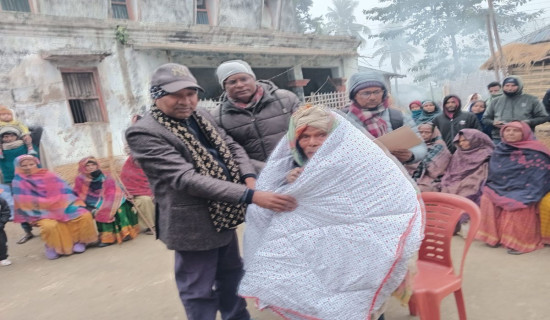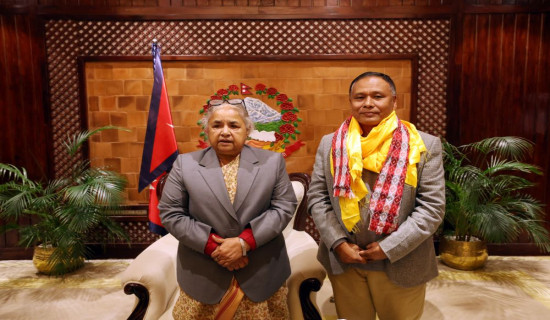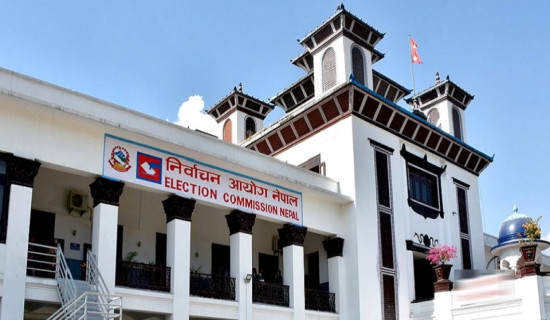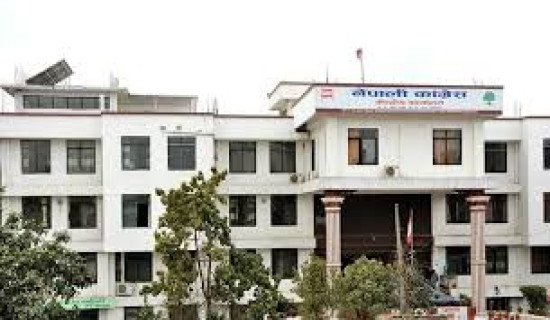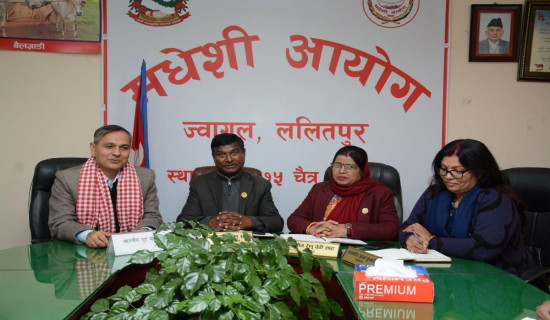- Thursday, 8 January 2026
Pioneer Of Progress
Shilshila's Journey Of Impactful Changes
Shilshila Acharya decided to follow her passion rather than following family expectations. While becoming a doctor would have provided her with a respectable job, she chose to focus on environmental science and women's empowerment. Her work gained recognition when she was selected as one of BBC's 100 most inspiring and influential women of 2024.
Acharya’s journey started from the small village of Beni in Myagdi district. Her dedication, hard work, love for the environment, and determination toward women empowerment have not only made Nepal proud but also set an example for others to follow. Acharya witnessed the challenges of rural life growing up. She completed her schooling in Beni, Myagdi. Both her parents worked for the government, and her mother, a teacher, consistently encouraged her to excel academically. Education was a family priority, which was uncommon for many girls in her community.
In Beni, child marriages and teenage pregnancies were common. Many of Shilshila’s friends left school early and got married. By the time she was in eighth grade, some of her classmates were already mothers. This deeply impacted Shilshila and inspired her to dream of a different future for the women in her community.
Shilshila completed her school leaving certificate and moved to Kathmandu for further higher education. She completed her high school in the science faculty and started preparing for medical school and even passed her MBBS entrance examination, earning a full scholarship to study MBBS from the Nepal Government. However, during the gap year only, Shilshila realised her true passion was elsewhere.
She got very drawn towards environmental issues and how they relate to people. Growing up in a small town in the foothills of Dhaulagiri, she had witnessed many environmental challenges firsthand. She gave up her idea of becoming a doctor, convinced her parents, and enrolled in Kathmandu University’s environmental science programme. She worked hard and graduated with honours, even receiving a prestigious medal for her academic brilliance. She was awarded the Chhatra Bidya Padak, which is presented by the President of Nepal. She later earned a scholarship from the Norwegian government and a fellowship from WWF Nepal to pursue her master’s degree in Nepal and Norway.
Once when stranded in Amsterdam due to a flight cancellation, Shilshila met an elderly man who told her, “Your life is blessed. There are so many women in Nepal who don’t have the opportunities you’ve had." Now, it is your turn to share your blessings with them. This conversation stayed with her and became a driving force behind her work. She sought to empower women, like her friends in Beni, who had been denied opportunities.
This further fuelled her to come back and work for the country, women, and youth. Her time abroad broadened her perspective, and she became even more determined to return back to her homeland and contribute.
After returning to Nepal, Shilshila wanted to take action. Her projects aim to combine environmental solutions with economic empowerment, focusing on sustainability and the advancement of women.
Among her initial ideas were producing cloth bags to replace plastic ones, offering green housekeeping services, establishing greenery in urban spaces and maintaining it, waste sorting, and setting up cycling stands to promote eco-friendly transport (cycling).
The first three projects were successful and gained momentum. They contributed to a cleaner environment and also created jobs for women, particularly from marginalised communities. Not all her ideas were feasible. Some, like the cycling stands, were not feasible and had to be shelved. But Shilshila did not give up. She focused on what worked and continued to innovate.
One of her most impactful projects was the 2014 “No Thanks! I Carry My Own Bag” campaign. This initiative encouraged people to use cloth bags instead of plastic ones and played a significant role in bringing policy for the eventual ban on plastic shopping bags in Nepal. It was a small step with a big impact, and it showed how individual actions could lead to policy changes.
Shilshila also worked with the Nepal Army on the Mountain Cleanup campaign, which has collected 119 tonnes of waste left behind by mountaineers from mountains above 8000+ meters. This waste was recycled or repurposed into items like jewellery, mats, and baskets, providing income for indigenous women. Her waste management company, Avni Ventures, has become a leader in recycling in Nepal, collecting thousands of tonnes of waste annually and creating jobs for hundreds of people.
In 2024, Shilshila’s efforts were recognised internationally when she was named one of the BBC’s 100 inspiring and influential women. Speaking about the honour, she said, “This achievement is not just for me. It’s for Nepal and for all the women who have been part of this journey.”
Shilshila’s work doesn’t stop here. She has big plans for the future. Her vision includes influencing environmental policies and ensuring better waste management systems across Nepal. She believes that separating biodegradable and non-biodegradable waste at the household level can solve 90 per cent of the problem. She is also leading technical assistance to the government to quantify plastic waste in Nepal and find sustainable solutions.
Shilshila’s message to the youths of Nepal is clear: keep your eyes on giving back to your country. She wants to offer opportunities to young people, especially those who do not have work experience but have the intent to learn and grow. Her own difficulties trying to find work after her undergraduate studies led her to create jobs and opportunities for youth and women throughout her career.
With glaciers in the Himalayas melting rapidly due to climate change, she sees an urgent need to act. She aims to recruit 100,000 youth in the next five years to raise awareness about the impact of global warming on Nepal’s mountains and work towards their protection.
Shilshila inspires many as a role model. Her story is a testament to the fact that, with persistence and a clear sense of purpose, challenges can be conquered and change can be made. She is an environmental entrepreneur, a change maker, a leader, and an inspiration. Acharya’s contribution to environmental conservation, waste management, and women and youth empowerment has put herself and Nepal in the limelight. Her story has created a ripple effect, inspiring others to think about how they can contribute to making the world a better place. And through her efforts, she is ensuring a cleaner, greener future for Nepal and the world.
(Bhusal is a journalist at The Rising Nepal.)










